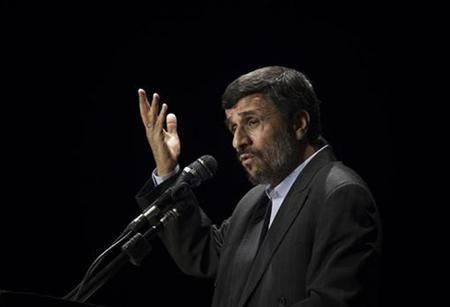Youcef Nadarkhani: Christian Pastor's Execution Looms in Iran

Youcef Nadarkhani, a Christian pastor in Iran, faces the death penalty if he refuses to convert to Islam.
Pastor Nadarkhani has been convicted of apostasy, the crime of abandoning a religious faith. Despite the fact that he was never anything other than a Christian, Iranian clerics have determined that since his ancestors practiced Islam he is still considered guilty.
While an appeal trial determined that Nadarkhani was not an apostate, Iran's Supreme Court upheld the original decision from the 11th branch of Iran’s Gilan Provincial Court. And while apostasy isn't technically in Iran's penal code, it is punishable under religious texts and Ayatollah Khomeini's fatwas.
Nadarkhani, who was arrested in 2009, has been given three chances to repent and convert to Islam. All three times he has refused. Nadarkhani was given his fourth and final chance to give up Christianity on Wednesday, which he again declined. No verdict has been announced, but many expect that he could be put to death as soon as Thursday.
Repent means to return. What should I return to? To the blasphemy that I had before my faith in Christ? Nadarkhani reportedly said at his trial.
To the religion of your ancestors, Islam, the judge replied, according to the American Center for Law & Justice.
I cannot, Nadarkhani conlcuded.
The looming execution has outraged international human rights organizations, and a number of Christian and activist groups are trying to rally a public outcry.
Freedom of belief, which includes the right to change one’s religion, is protected under Article 18 of the International Covenant on Civil and Political Rights, to which Iran is a state party, Amnesty International stated.
Iran executes the second most people per year, more than every country in the world beside China. Iran has held almost 100 executions in September alone, most, but not all of which, have been reported by the government.
There have been about 400 total executions so far in 2011 in Iran, according to Amnesty International. These include Iran's “retribution” sentences, which are their own class of penalty given only to convicted murderers.
Additionally, Iran is one of the few places where teenagers can be given the death penalty. Last Wednesday, 17-year-old Alireza Molla-Soltani was publicly hanged for the murder of Ruhollah Dadashi, a famous athlete known as Iran's Strongest Man.
“The execution of a 17-year-old is deeply shocking, particularly when carried out in public, which brutalizes all those involved, including those who witness it,” stated Amnesty's Deputy Director for the Middle East and North Africa, Hassiba Hadj Sahraoui.
“Executing juvenile offenders – whatever their age at the time of execution - is strictly forbidden under international treaties that Iran has signed up to. It is high time for the Iranian authorities to take their international obligations seriously and immediately stop executing teenagers, she added.
The execution process is much speedier in Iran than in the U.S., where death row inmates sit for years before being killed. Alireza Molla-Soltani was sentenced to death on Aug. 20, denied appeal on Sept. 11, then hanged on Sept. 21.
Nadarkhani is just the latest Christian to be detained in Iran. Between June 2010 and January 2011, at least 202 people were arrested for their religious beliefs, according to UK-based Elam Ministries. Nonetheless, no one has been executed for apostasy in Iran for 20 years, Amnesty claims.
While Iran's government claims to promote tolerance, it continues to imprison many of its people because of their faith, U.S. House Speaker John Boehner said in a statement. This goes beyond the law to an issue of fundamental respect for human dignity. I urge Iran's leaders to abandon this dark path, spare [Nadarkhani's] life, and grant him a full and unconditional release.
© Copyright IBTimes 2024. All rights reserved.





















